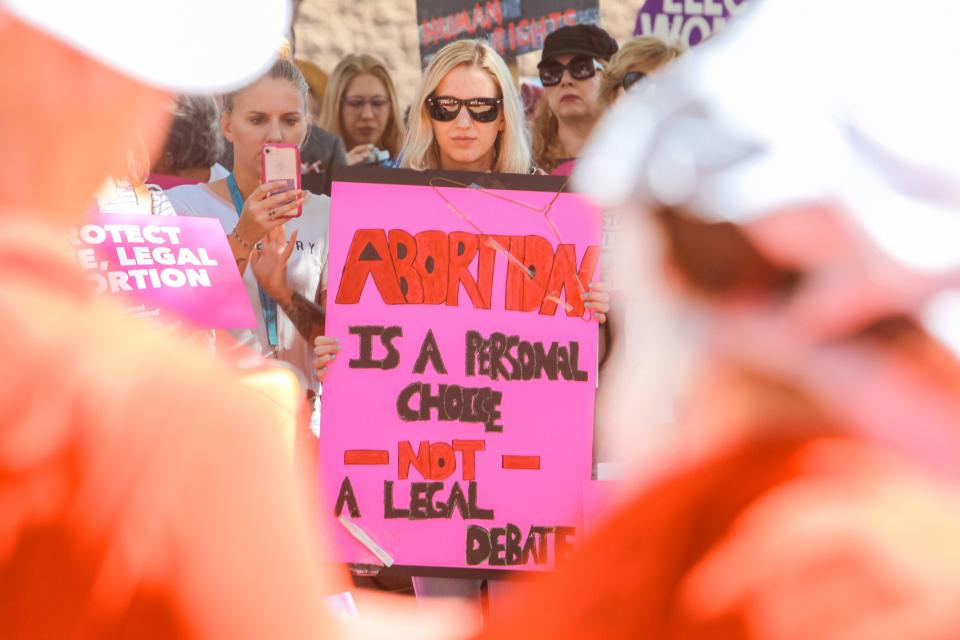My abortion story: What the world looked like without Roe v. Wade
I was a senior in high school in the spring of 1969 and horrified to find out I was pregnant just weeks before graduation.
As an athlete, I had irregular periods and didn’t have a pregnancy test until I missed two periods – which means eight-plus weeks.
I tried unsuccessfully to end the pregnancy myself because I was too scared and ashamed to tell my parents.
I needed help. I got scammed
Confiding in my oldest sister, she agreed to help me find access to an abortion, which was illegal at the time. After several references, we found a “chiropractor” in New Jersey who was performing abortions.
Using my college savings, we flew across country for the procedure. We stayed in a cheap motel, and I saw the “doctor” twice – which turned out to be a scam. He had packed me with gauze and then removed it the next day.
Upon my return home, I visited an OB-GYN to make sure I was OK, only to learn that I was still pregnant!
I was depressed, upset, unable to focus on school, and I knew I had to do something soon. I was determined to terminate the pregnancy because I had earned a scholarship and grant to university in the fall.
In desperation, I turned to Mexico

As a last option, I decided to go to Mexico for an abortion even though this would be risky and would take my remaining savings.
In a final attempt, I appealed to the state medical board in New Mexico, and they ruled that my life would be in danger if I went to Mexico – so luckily, I was granted a safe abortion in a hospital.
Then, in my senior year of college, my birth control failed and once again I was unwed and pregnant. It was 1973 and Roe v. Wade had just passed.
Planned Parenthood helped me arrange an abortion at the community hospital, and I was relieved to be able to terminate the pregnancy quickly and safely since I was not ready to start a family.
It is important to understand that abortions are never “planned” and having children is a significant determinant of a person’s economic future.
Like me, individuals with an unplanned pregnancy may opt for termination because they are too young, or too old, or too sick, or too broke, or too busy with kids they already have – or any number of medical reasons.
Restrictions won't stop abortions
Only the individual can determine what makes sense for them and their families at that point in time.
This year marks the 49th anniversary of Roe v. Wade.
However, last year states passed an unprecedented 108 restrictions on abortion, according to the Guttmacher Institute.
Arizona already has some of the most severe restrictions on reproductive freedom in the country. Now our state representatives are introducing a copycat bill of the Texas abortion ban.
What our lawmakers don’t seem to understand is that banning abortion does not prevent it from happening. In fact, research has shown that restrictions do not decrease the incidence and serve only to make abortion care difficult or impossible to obtain.
Everyone should be able to plan their families without barriers, fears or political interference.
Connie Cornelius retired after 20 years in corporate marketing and started a second career in the travel and tourism industry. She holds an MBA and master’s degree in tourism administration. She lives in Phoenix. On Twitter: @cncaz69.
This article originally appeared on Arizona Republic: Abortion won't end if Roe v. Wade falls. Consider my story from 1969

